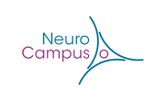Bernhard Staresina, School of Psychology, University of Birmingham, UK | Making memories: How the human hippocampus binds, consolidates and retrieves experiences
| When |
Oct 23, 2018
from 05:15 PM to 06:45 PM |
|---|---|
| Where | BCF Lecture Hall, Hansastr. 9a |
| Contact Name | Lukas Kunz |
| Add event to calendar |
|
Abstract
Episodic memory, our ability to mentally relive past events and experiences, lies at the core of human cognition. Our episodic memories not only allow us to reminisce about the past, but they provide a coherent concept of the self and guide adaptive behaviour for future challenges. Conversely, the debilitating effects of memory loss are evident in healthy ageing and in patients suffering from neurodegenerative diseases such as Alzheimer’s disease. A full understanding of episodic memory formation is therefore of utmost importance for gaining fundamental insights into the mind, for optimising learning strategies and for therapeutically combating memory loss or the recurrence of traumatic memories.
In this talk, I will present three studies aimed at elucidating the role of the hippocampus in episodic memory. Using fMRI, I will first ask how the hippocampus binds different elements of our experience during initial learning. Next, I will present intracranial EEG data on the question how our memory machinery works while we sleep. Finally, I will present new single unit recordings asking how the hippocampus drives pattern completion in cortical sites during successful memory retrieval.
Literature
Staresina, B. P., Bergmann, T. O., Bonnefond, M., Van Der Meij, R., Jensen, O., Deuker, L., & Fell, J. (2015). Hierarchical nesting of slow oscillations, spindles and ripples in the human hippocampus during sleep. Nature neuroscience, 18(11), 1679.
Staresina, B. P., & Davachi, L. (2009). Mind the gap: binding experiences across space and time in the human hippocampus. Neuron, 63(2), 267-276.









